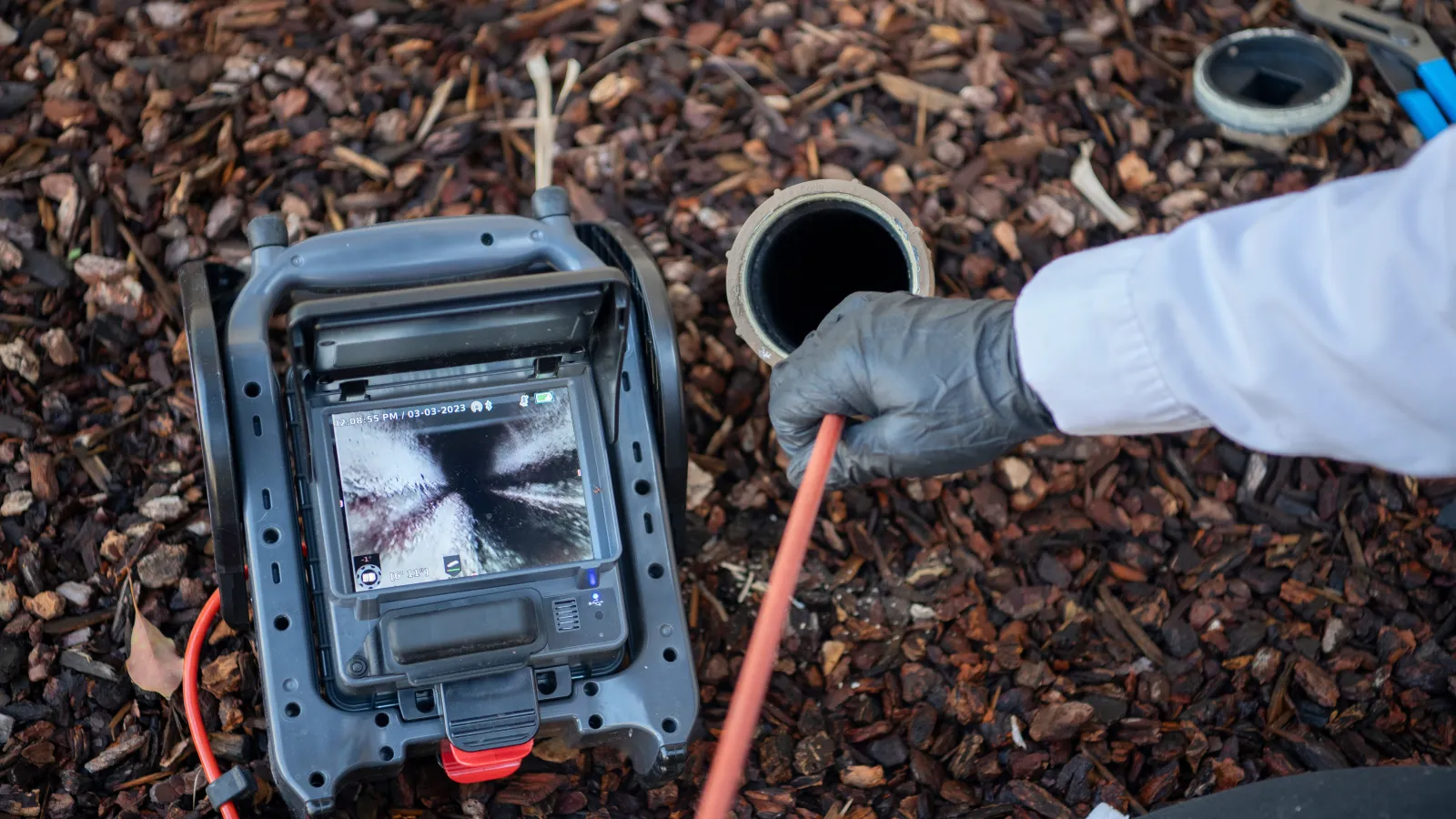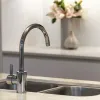Some people simply aren't bothered by small inconveniences.
This can be a good thing. For example, maybe you're able to shrug off a sudden rain shower that wasn't in the forecast. Your ability to accept this small annoyance is a positive sign of resiliency.
But if you shrug off a slow-draining sink, you might regret it.
That's because a slow-draining sink could be a sign of a major sewer line problem.
And if you've got a sewer line problem, you'll need to fix it ASAP. The longer you wait, the more serious the problem will become.
What makes sewer line problems so serious?
There are several kinds of plumbing problems. When it comes to severity, they range from not-so-serious to hair-on-fire emergency.
Sewer line problems fall into the latter category.
Why so serious? Because when your sewer line is clogged or damaged, you can't run water or flush toilets. When you do, you're just putting more wastewater into a system that can't process it.
The worst case scenario is that sewage backup enters your home.
Yes, this really happens. You'll see sewage backup in floor drains first. Keep running water, and you may see it come up through other lower-level plumbing fixtures.
Sewage backup, besides being a health hazard, can cause expensive property damage. It also smells like, well… sewage. It's no fun for anybody.
Needless to say, you do want to be able to run water and flush toilets. You also don't want sewage to back up into your house. So fixing a sewer line problem should be a major priority.
Sewer line problems might not seem serious… at first.
You know how we mentioned not being bothered by small inconveniences? Well, sewer line issues often start out that way. You might experience seemingly insignificant issues, such as:
- Sinks and showers that are slow to drain
- Unusually lush areas in your yard
- Gurgling noises coming from your drains
Maybe you notice these things and ignore them because, let's face it, they don't really affect your life in a serious way.
But they will.
Those slow-draining sinks? Before long, they might not drain at all.
The taller, greener patches of grass in your yard? Those could turn into standing pools of sewage.
And those gurgling sounds from drains? They might soon be accompanied by noxious odors, clogs, or even sewage backup in your sink or tub.
This is why it's best not to ignore small drainage issues! They often become major sewer problems that cause way more trouble and cost a lot more to address.
What to do if you notice a problem with your drains
The first thing to look out for is whether you have the same problem in multiple drains.
That's because a single clogged drain doesn't usually indicate a sewer line problem. If just one fixture isn't draining, you probably have a ball of hair in the drain or a localized clog that can be plunged or snaked into oblivion.
But if you have multiple clogged or slow drains, that usually means there's a problem deeper in the plumbing system.
This is especially true if the drains clogged up or became slow around the same time. If you have a multi-story home, you may also notice the blocked or slow drains on your lower level first. If the fixtures are draining slowly, you might also hear gurgling sounds or smell sewage after they finish draining.
So, what do you do? Here's how to proceed:
- Shut off your water. The more water you run or flush, the greater your risk of backing up the sewer system. Please try to use the toilet and shower elsewhere until the problem is addressed.
- Call a licensed plumber. Look for a contractor who specializes in sewer and drain services.
- Request a sewer camera inspection. This is the first step for identifying what's wrong. A licensed plumber will send a camera down the sewer cleanout access point to inspect your sewer line.
- Proceed with the recommendations. Depending on what the camera reveals, you may need sewer line repair, spot replacement, or complete sewer line replacement. Your contractor can discuss your options and point you to the best long-term solution.
Common sewer line problems include tree root intrusion, collapsed sewer line, or a sewer line belly. You might also have a cracked sewer line that only requires a spot replacement.
The longer you wait, the bigger the problem gets.
So it goes with sewer line issues!
Ignoring them won't make them go away. In fact, ignoring them only ensures they get worse.
If you live in Metro Atlanta and are experiencing any signs and symptoms of sewer line problems, PV Heating, Cooling & Plumbing can help! We're drain and sewer specialists and are equipped to diagnose and resolve any problem you may be having with your drains or sewer system.
Call us today at (404) 798-9672 or schedule service online!





